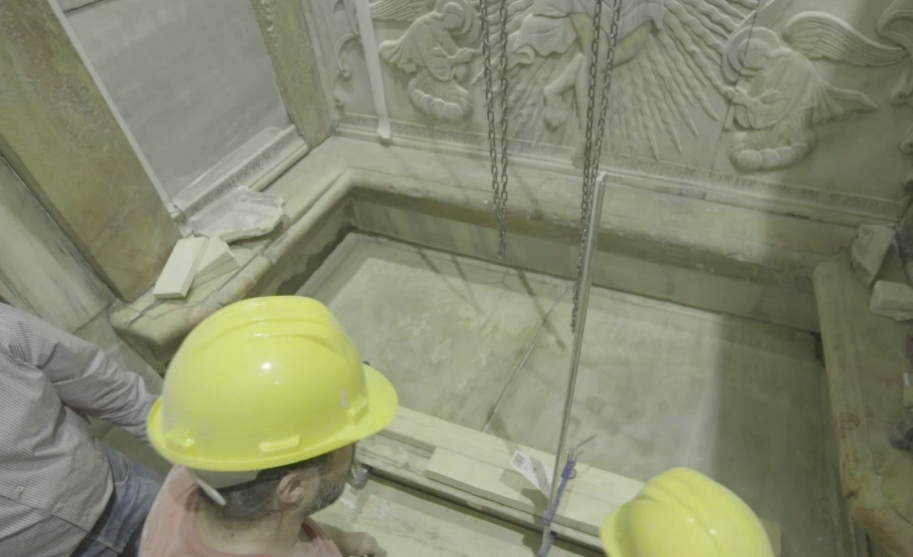
JERUSALEM (National Geographic) — For the first time in centuries, scientists have exposed the original surface of what is traditionally considered the tomb of Jesus Christ. Located in the Church of the Holy Sepulchre in the Old City of Jerusalem, the tomb has been covered by marble cladding since at least 1555 A.D., and most likely centuries earlier.
“The marble covering of the tomb has been pulled back, and we were surprised by the amount of fill material beneath it,” said Fredrik Hiebert, archaeologist-in-residence at the National Geographic Society, a partner in the restoration project. “It will be a long scientific analysis, but we will finally be able to see the original rock surface on which, according to tradition, the body of Christ was laid.”
According to Christian tradition, the body of Jesus Christ was laid on a shelf or “burial bed” hewn from the side of a limestone cave following his crucifixion by the Romans in A.D. 30 or possibly 33. Christian belief says Christ was resurrected after death, and women who came to anoint his body three days after the burial reported that no remains were present.
Continue reading this story >>
Become a Christian News Network Supporter...


